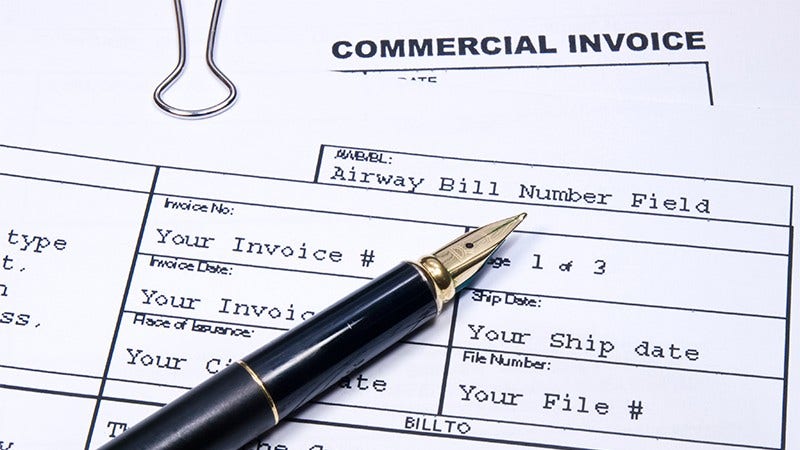If you trade or move goods in, around, or out of Europe, you need to pay attention to new VAT regulations. Read on to ensure your business if your business prepared, and avoid disruptions to your cross-border trading.
The European Union is removing the current VAT de minimis threshold of €22 for all imports. From July 1, 2021, the abolition of the de minimis threshold means every EU e-commerce transaction will be subject to EU VAT and a Customs Declaration.
What is a de minimis threshold?
A de minimis threshold is a value set by a country to apply customs duty and tax rates on imported goods. If the value of the shipment is below the threshold, it can be cleared without incurring customs duties or taxes. The EU is abolishing this threshold altogether, thus all imports – regardless of value – will be subject to VAT from July 1, 2021.
Non-EU e-commerce businesses which sell low-value goods to countries in the EU will be most affected.
What is the importance of conforming to these new regulatory changes?
Conforming to these upcoming European regulatory changes will help your business:
- Reduce unnecessary clearance delays and transit time
- Reduce the risk of fines and penalties
- Fully comply with security/safety screening
- Leverage a simple and beneficial customs process
- Rightly assess taxes and duties
- Avoid contacting customer service needlessly for you as well as your customers
Need for speed
If your e-commerce business offers Express delivery to international customers, complying with the new regulatory changes will ensure there are no delays and you keep your promises!
Why are these changes happening?
The rapid growth of cross-border e-commerce in recent years means current EU VAT policies are outdated, and favor non-EU merchants who are not subject to the same VAT rules as those in the EU. European merchants have to pay VAT for all transactions, while merchants outside of the EU member states do not. Non-EU merchants can pass on these savings to customers, giving them an unfair pricing advantage over their competitors.
In addition, the EU loses out on billions of lost VAT revenue every year with the current rules; it’s estimated the new requirement will raise an additional €7 billion in VAT revenue, annually.
Brexit
Since the UK left the European Union on January 1st, 2021, customs declaration is now needed for shipments from the UK to the 27 EU member states and vice versa.
What do I need to do to ensure my shipments comply with the new regulations?
1. Provide an accurate goods description on your waybill
Customs authorities are increasingly requesting complete and accurate goods descriptions in order to perform security/safety screening before shipments even leave the origin country. Without this precise information, DHL will not be able to transport your shipment.
- Acceptable goods descriptions include complete information, providing sufficient detail about the precise nature of goods in plain language
- A description should indicate what the goods are, what they are made of and the purpose for which they are used
- Descriptions must be accurate so that customs authorities can identify prohibited/restricted goods and perform adequate risk profiling for safety and security reasons
2. Provide your commercial invoice electronically
DHL Express expects to receive both your commercial invoice data and shipment data together electronically*. This will enable DHL to clear your shipments through customs without delays. The customs clearance process can start immediately, providing huge advantages in terms of service quality and lead-time performance:
- Complete and accurate customs declaration with minimal human intervention
- Fast automated customs clearance processes for both exports and imports
- Even better service quality, as goods can now clear customs prior to their arrival
- Full compliance with customs authorities
- Ability to conduct risk assessment (e.g. dangerous goods identification) before goods arrive
For an overview of key commercial invoice data element categories, click here.
*If you are not yet providing DHL Express with complete and accurate commercial invoice data electronically, please contact a sales representative to learn more about the options available to your business.
The online cross-border market in Europe was worth 146 billion euros in 2020, representing 25.5% of total online sales1.
The new EU regulatory changes might all sound like a lot of extra admin and hassle, but there are some extra steps you can take to make it easier:
1. Import One Stop Shop (IOSS)
This is an electronic portal the EU has introduced where you can register to get a single VAT IOSS ID number that applies to distance sales in all 27 EU countries. This will simplify the process by enabling you to collect, declare and account for VAT and pay your bill directly to the EU Tax Authorities via a periodic tax return (for goods up to the value of €150).
2. Duty Deferment Account
This allows you to postpone payment of customs duty, excise duty and VAT by up to 46 days. Instead, you can pay fees for all shipments once a month by Direct Debit rather than per consignment at the point of import. This means your shipments can clear customs quickly, without delay, and help you manage cash flow better.
Top reasons online consumers shop from cross-border retailers
- Better prices: 72%
- Access to items not available in own country: 49%
- To discover new and interesting products: 34%
Source: PayPal2
Remember, cross-border shipping doesn’t have to be complex! Partnering with DHL means your business will benefit from our international expertise and knowledge of local markets, leaving you with more time to concentrate on growing your business. Speak to a DHL rep today for further advice to ensure your business is ready for the new EU regulations.















